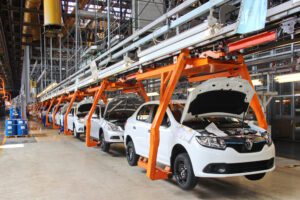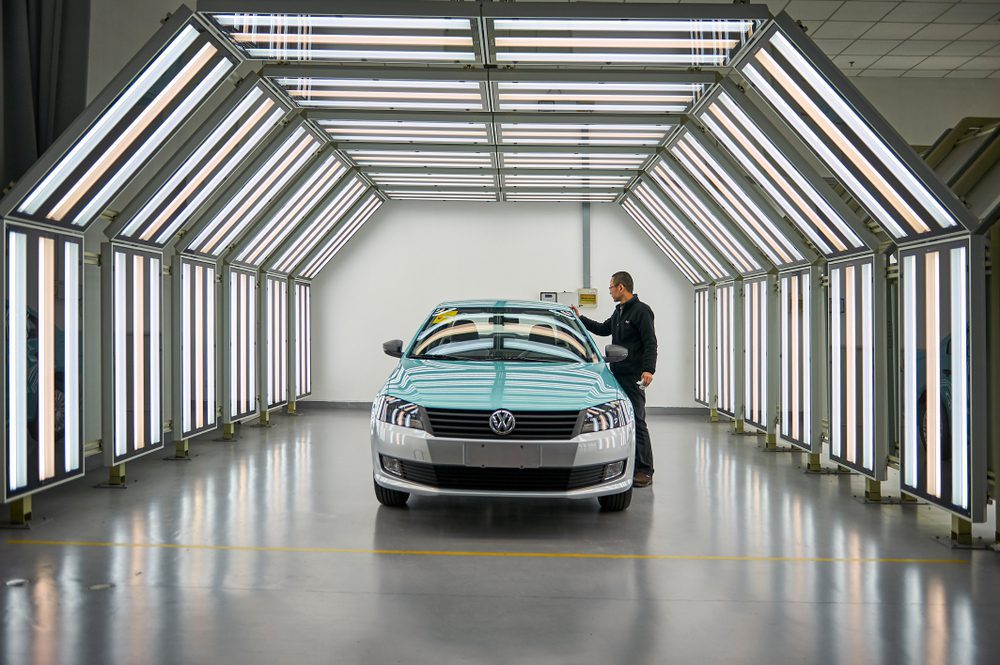Demand for new cars has been stronger than expected after the coronavirus pandemic, according to Wards Intelligence data. The deep V-shaped recovery is trending to nearly resume normal sales figures in the second half of 2020. That surprising trend, combined with automaker shutdowns that lasted for six weeks or more, has led to an inventory shortage on some popular models.
Pickup trucks and SUVs have been surpassing expectations. That’s even despite models like the F-150 and Chevrolet Silverado occupying top spots on the bestselling vehicles list for years. Several of those popular models are running low on stock. The Chevrolet Silverado is running on 37 days supply while the Sierra has 31 days supply remaining. That’s nearly half of the goal number of 60 days supply.
The good news is that auto makers are set to resume normal production. Fiat Chrysler Automobiles and Ford Motor Company restarted production on June 22 while General Motors Co. has planned to resume normal output by the end of June.
GM’s CFO Dhivya Suryadevara said, “We’re still targeting to be at normal capacity by the end of June or sooner, if possible, but obviously it’s a very fluid situation.”
Most carmakers have been back to work for roughly five weeks including Volkswagen, Toyota, Hyundai, and Detroit’s Big Three. That production has been at a limited capacity due to limited parts availability from suppliers, expected lower demand, as well as complications with PPE and health regulations to maintain required safety measures.
Working Through the Summer
Last week, Fiat Chrysler announced they would be working through the usual summer shutdowns as their two Michigan truck plants, the Ohio-based Jeep assembly plant, and a factory in Canada.
That’s bound to be the norm for factories producing trucks and SUVs in North America as demand simply can’t be satiated.
What Dealers Can Expect
The coronavirus has not yet been beaten and continues to surge in areas of the States. The resumption of normal buying activity indicates a few things coming down the line that dealers should note.
Incentives Pulled Back on Trucks and SUVs
With reduced inventory and accelerating demand, it’s unlikely that the enticing incentives manufacturers have been giving to consumers will continue. For Ford, that’s already the case as their ‘Built to Lend a Hand’ program no longer includes deferred payments or three payments made on the customer’s behalf.
Expect that no-interest loan terms will retract to 36-month to 60-month terms and cash incentives return to pre-COVID levels.
Cuts to Cars and Compact Utes
It becomes even more obvious that cars and compact utility vehicles are sliding in popularity. One of the industry’s largest purchasers of said models, Hertz, has cancelled orders amid bankruptcy dealings.
Carmakers will be looking to entice buyers to buy up that excess inventory. Massive incentives are likely here, and dealers can capitalize by snatching up batches of inventory as it comes available.
Continued Aggressive Truck Buyers
Since they’re the most popular models on the road, and with fuel prices still suppressed, trucks and SUVs are going to remain in demand. That should be expected even when incentives are pulled back. Dealers who can maintain strong inventory on their most popular trim levels will continue to experience success.
In a few months’ time when inventory has reached normal levels once again, we hope that the pandemic is in the rearview mirror and the industry can fully recover. In the meantime, dealers will need to keep their finger on the pulse of the industry and make changes on the fly to stay ahead of the curve.
Did you enjoy this article from Jason Unrau? Read other articles from him here.
Car Biz Today, the official resource of the retail automotive industry.


While you’re here, don’t forget to subscribe to our email newsletter for all the latest auto industry news from CBT News.








